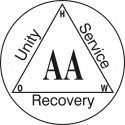Drink link to premature birth
Doctors say women who drink heavily early in a pregnancy – possibly before they know they are pregnant – may be raising the risk of premature delivery.
A study of 4,719 Australian women found almost an 80% higher risk for women who drank heavily in the first third of pregnancy, then stopped.
However, experts warned it was possible the results were a “statistical quirk”.
The BJOG journal study found no evidence of problems for women who drank low levels throughout pregnancy.
The subject of alcohol and pregnancy has been controversial, with some guidelines advocating no alcohol intake, while other specialists believe that drinking small amounts is unlikely to harm the developing child.
The latest study suggests that the period during which binge or heavy drinking can have the greatest effect is during the first trimester.
When you consider the number of pregnancies which are not planned, it is quite possible that by the time a woman realises she is pregnant, it is too late, and the damage has been done
With as many as 40% of pregnancies unplanned, this may include several weeks in which the woman is unaware she is carrying a child.
Unusually, the strongest link between alcohol use and early birth was for women who drank moderately or heavily – several units of alcohol or more a week – during the first trimester, but then stopped completely for the rest of the pregnancy.
The researchers suggested that it was possible that the sudden cessation of alcohol drinking might provoke inflammation which could harm the developing foetus in some way, although this idea was not tested during the study.
Caution urged
Dr Colleen O’Leary, from the University of Western Australia, who led the study, said: “The risk of pre-term birth is highest for women who drink heavily or at binge levels.
“Women should be advised that during pregnancy, drinking alcohol above low levels increases the risk to the baby and that the safest choice is not to drink alcohol during pregnancy.”
The editor of the British Journal of Obstetrics and Gynaecology, Professor Phillip Steer, said the study represented a warning to women.
He said: “When you consider the number of pregnancies which are not planned, it is quite possible that by the time a woman realises she is pregnant, it is too late and the damage has been done.”
However, Professor Andrew Shennan, representing baby charity Tommy’s, said that the results needed to be interpreted cautiously.
“It is still possible that, given the relatively small number of women involved, this finding could be a statistical quirk.
“More research needs to be done to ascertain the true extent of the risk posed by drinking alcohol during pregnancy.
“This is a controversial area with many conflicting results and recommendations about what is deemed a ‘safe’ level of alcohol consumption.”
However, he said that a precautionary approach was still sensible for women who might fall pregnant.
“Now that you can buy kits which can tell you whether you are pregnant before you have even missed a period, perhaps women who binge drink should take advantage of these.”
source: BBC News

